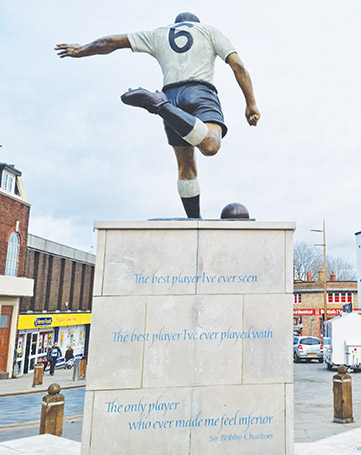Ruth Henig, Baroness Henig of Lancaster, the chair of the Security Industry Authority from 2007 to 2013, has died. She was 80. Mark Rowe writes:
The Scottish-based security company Securigroup that she became a director of after her terms as SIA chair, has written a fine obituary and the SIA was prompt in placing online a tribute. To those I would add the numerous honorary positions she took after her time at the SIA, such as president of the Security Institute; and industry events that she attended – the most recent one that I saw and spoke to her at was the IPSA lunch at The Shard, courtesy of Mitie, on November 28. To single out another, on a November evening in 2021 she went to University College London, when it was awarded the campus security, safety and well-being accreditation ProtectED. Besides the visible gift of ‘saying a few words’, what left no trace was the numberless times she made connections between security industry people and parliamentarians, a rare asset indeed for private security compared with all the peers and MPs with a military or police service background.
And yet she came to private security, the SIA, late in life; she had been an academic historian at the University of Lancaster, and a graduate student at the University of London. Among the historians there was Conrad Russell, son of the great philosopher Bertrand. Her first husband Stanley was Labour MP for Lancaster while Labour was in power with a large majority from 1966 to 1970. She served in local government as a councillor, on Lancashire County Council; she chaired Lancashire Police Authority, in the pre-2012 era when local government had oversight of police forces rather than elected police and crime commissioners. That she took a role nationally in police oversight explains her being made a life peer by Labour in 2004; and her appointment as SIA chair.
For those looking over a distinguished life after it’s ended, it’s natural and even unavoidable to have least to say (like Boswell in his Life of Johnson) on the earliest years. In a remarkable interview with Una Riley in Professional Security Magazine, Ruth Henig told the story of how her parents, having fled Nazi Germany as Jews, had to flee the Low Countries for England in 1940 when the Nazis invaded. On hearing or seeing this well-spoken lady, it was difficult to guess that she was the daughter of those refugees, who (presumably) arrived in Britain with only what they could carry. Did that past matter to Ruth Henig? As an academic historian, it would be odd if the past had not mattered to her; that members of her family that did not flee, perished in Auschwitz. She was a supporter of the project to build a Holocaust Memorial in London.
In what we know now were her last months, she spoke of writing her memoirs. Would she have explained how plain extraordinary it was, that 1) as a woman making her way in the 1960s she made a career for herself, and 2) made it to the House of Lords? And a deputy speaker there?
Had she written memoirs, it may have been striking how little she wrote about her public service. A chapter would have covered football: she recalled Duncan Edwards as the finest player she saw – which dated her (of all the deaths in the tragedy of the Munich air crash of 1958, Edwards’ was arguably the biggest loss to English football). I forget; did she say she attended the 1966 World Cup final? Certainly, she watched the tournament. As a fan of Leicester City – that was the town she grew up in – you can imagine how much she enjoyed their Premier League title season of 2015-16.
Another memoir chapter would have been about bridge. Her House of Lords’ bridge team, not many weeks ago, played Wimbledon Tennis Club. Perhaps her love of bridge, that most civilised of card games, besides her many years in local government, which historically was without the friction between political parties at Westminster, helps to explain her political outlook. If Ruth Henig, as astute and articulate an observer of politics as any – and it’s run in the family, her son Simon, also Labour, has led Durham County Council – if she would allow me to use a cliché, she was a ‘consensus’ politician, ready to work with Conservatives and Greens, as opposed to the extremists of any stripe.
My relations with Ruth Henig began in the worst possible way – I wrote a poor article on her appointment as SIA chair that I apologised about when we met. Have I ended it poorly, as well, by illustrating this obituary with a photo of the statue of Duncan Edwards in his hometown of Dudley, and not her? Do these few words suffice? I can only say that I regret that I am unable to discuss that and much else with her, over a pot of tea.










